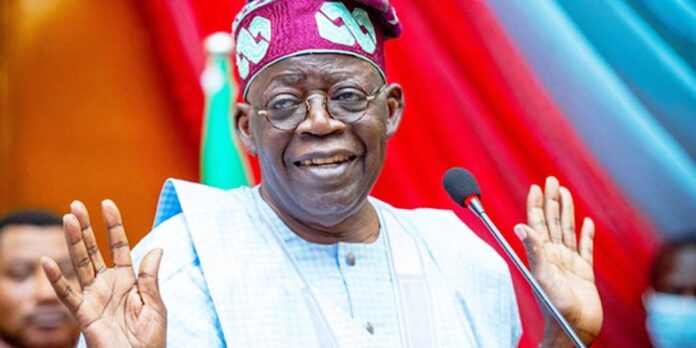Last Updated on May 10, 2024 by Silvy
Nigerians Trend #TinubuMustGo To Reject Hardship, Inflation Imposed On Them By Government
In recent times, Nigeria has witnessed a groundswell of public discontent, particularly on social media platforms, under the trending hashtag #TinubuMustGo. This movement reflects a deep-seated frustration among citizens with the current socio-economic conditions in the country, which they attribute to the policies and actions of President Bola Tinubu’s administration.
From accusations of economic mismanagement to allegations of corruption, Nigerians are voicing their concerns and demanding change. This essay aims to delve into the roots of this movement, analyze its significance, and explore the underlying socio-political dynamics shaping it.
To understand the #TinubuMustGo movement fully, it’s essential to contextualize it within Nigeria’s political landscape. Bola Tinubu, a prominent political figure, rose to prominence as the former Governor of Lagos State and a key figure in the All Progressives Congress (APC). His influence extends beyond Lagos, with aspirations for national leadership. However, his tenure as president has been marked by controversies, particularly regarding economic policies such as the removal of petrol subsidies.
One of the primary grievances fueling the #TinubuMustGo movement is the state of the Nigerian economy. Citizens are grappling with rising inflation, unemployment, and general economic hardship. The removal of petrol subsidies, a decision attributed to Tinubu’s administration, has exacerbated the situation, leading to increased fuel prices and a ripple effect on the cost of living. Nigerians feel the pinch of these policies in their daily lives, leading to widespread discontent.
Accusations of corruption against Tinubu’s government have also fueled the call for his resignation. Critics point to instances of alleged financial misconduct, nepotism, and cronyism within the administration. The perception of widespread corruption erodes public trust in the government and undermines its legitimacy. As a result, citizens are demanding accountability and transparency from their leaders, with the #TinubuMustGo movement serving as a vocal expression of their dissatisfaction.
The use of hashtags such as #TinubuMustGo serves as a powerful tool for collective mobilization and messaging on social media platforms. Beyond its literal meaning, the hashtag encapsulates broader sentiments of disillusionment, frustration, and a desire for change. It symbolizes a rejection of the status quo and a demand for leadership that prioritizes the welfare of the people. Through social media activism, Nigerians are amplifying their voices and exerting pressure on the government to address their concerns.
The #TinubuMustGo movement carries significant political implications, both for President Tinubu and the broader Nigerian political landscape. As a potential presidential candidate, Tinubu’s ability to address the grievances of the populace will impact his electoral prospects. The movement also reflects broader shifts in Nigerian politics, with citizens increasingly vocal and assertive in holding their leaders accountable. It underscores the importance of responsive governance and the need for politicians to prioritize the interests of the people.
While the #TinubuMustGo movement represents a powerful expression of public discontent, it also faces challenges and opportunities. Sustaining momentum beyond social media activism requires effective organizing, coalition-building, and engagement with traditional political structures. Moreover, addressing the underlying socio-economic issues driving the movement necessitates comprehensive policy reforms and institutional changes. However, the movement also presents an opportunity for constructive dialogue, reform, and democratic renewal in Nigeria.
The #TinubuMustGo movement reflects a broader trend of citizen activism and mobilization in Nigeria, driven by economic grievances, corruption allegations, and a desire for accountable leadership. As President Tinubu’s administration grapples with mounting pressure, the movement serves as a reminder of the power of collective action and the imperative of responsive governance.
Moving forward, addressing the concerns raised by the movement requires genuine engagement, political will, and a commitment to inclusive development. Only through concerted efforts to address the root causes of discontent can Nigeria chart a path towards a more prosperous and equitable future for all its citizens.
The same mumu people that voted for Tinubu are now shouting #TinubuMustGo. Mumu tribal bigots everywhere
— Fast Naija Update (@FastNaijaUpdate) May 9, 2024
Shola Oba of Benin Sky b kogi pic.twitter.com/2KpleaXpgl


